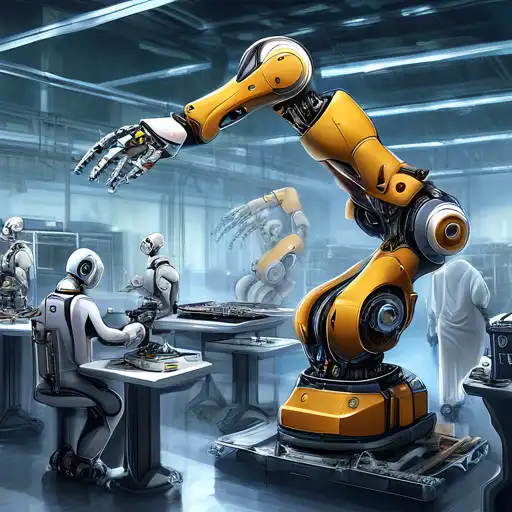The Revolutionary Impact of Robotics on Modern Manufacturing
In the heart of the industrial revolution, the introduction of robotics into manufacturing processes has marked a pivotal shift towards efficiency, precision, and scalability. This transformation is not just about replacing human labor but enhancing capabilities, reducing errors, and opening new avenues for innovation.
Enhanced Efficiency and Productivity
Robotics technology has significantly increased production rates by performing tasks faster and more accurately than human workers. Automated systems can operate 24/7 without fatigue, drastically reducing downtime and increasing output. For instance, in the automotive industry, robots assemble parts with precision, ensuring consistent quality while speeding up the production line.
Reduction in Operational Costs
While the initial investment in robotics can be substantial, the long-term savings are undeniable. Robots reduce the need for manual labor, minimize waste through precision, and lower the risk of costly errors. This cost-effectiveness is transforming small and large-scale manufacturing alike, making high-quality products more accessible to consumers.
Improved Safety in the Workplace
Manufacturing environments can be hazardous, with risks of injury from heavy lifting, repetitive motions, or exposure to harmful substances. Robotics take on these dangerous tasks, significantly reducing workplace accidents and creating a safer environment for human workers to focus on more complex and less risky operations.
Customization and Flexibility
Modern robotics are not just about mass production; they offer unparalleled flexibility in manufacturing. With advanced programming, robots can quickly switch between tasks, allowing for customized production runs without significant downtime. This adaptability is crucial in today’s market, where consumer demand for personalized products is on the rise.
Challenges and Future Prospects
Despite the benefits, the integration of robotics into manufacturing is not without challenges. High initial costs, the need for skilled personnel to operate and maintain robots, and concerns over job displacement are significant hurdles. However, as technology advances and becomes more accessible, these challenges are being addressed, paving the way for a future where robotics and human workers collaborate more closely than ever before.
The transformation brought about by robotics in manufacturing is just the beginning. With continuous advancements in artificial intelligence and machine learning, the potential for further innovation is boundless. The future of manufacturing lies in the synergy between human creativity and robotic precision, driving industries towards unprecedented growth and efficiency.
For more insights into how technology is shaping industries, explore our technology trends section.
